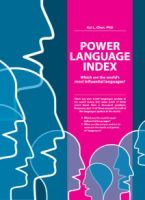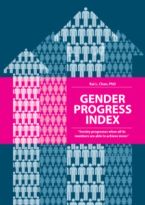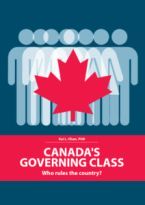
Culture of fat
On a flight from Tokyo to New York this past summer I read a very illuminating article about the world’s new epidemic: obesity. The commentary talked about how the fat culture is creeping in to poor countries, and how, in fact, the poor are even more susceptible to this problem. Mainly, the article articulated the point that the growing fast food culture has started producing an upsurge in unhealthy people. Even in places such as Ethiopia and Uganda, weight-loss clinics have begun to pop up in response to the changing waistlines of the populace. What caught my attention, however, were the figures for the United States and other developed countries.
The U.S. has the highest incidence of obesity among all industrialised nations. In the U.S., over half of the adult population is said to be overweight, and a third are obese. The metric used for these numbers was the body mass index indicator, which is calculated as one’s weight in kilograms divided by one’s height in metres squared: BMI = kg/m2. A BMI in the range of (19, 25) is considered healthy, whereas a BMI over 30 is considered obese. (Women generally like the lower range and guys usually like the upper range.) For comparison, the number of obese adults in Canada is about twelve percent. (One would think it would be higher given that Canadians chew whale blubber and live in igloos.) I would rather not speculate on the reasons for the disparity, but I think portions have something to do with it. I mean, just go to the local “7-11” or “Wawa” and look at the sizes they offer. The “Big Gulp” is ridiculously large, and let’s not even start about the popcorn sizes served at the cinemas.
In any case, the sobering thought on my mind was the statistic that the one third of adult Americans who are obese includes young adults – those between 18 and 29, our age group. When we are young adults we stay in relatively good shape, even if we live an unhealthy lifestyle (the power of youth!). What is scary, then, is the figure that one would see for adults thirty and above. Now I know that thirty might seem very distant for most undergraduates, but, like a lion in the savannah, it sneaks up on you and then one day you wake up and bam! you are a geezer.
So although most Princeton students are in good shape right now, it is imperative that we all get into the habit of a healthy lifestyle. The truth is that once most of us graduate we will be sitting in an office all day and we will succumb to the automobile culture. Only those blessed with a roaring metabolism, or those who choose to raise a tapeworm, will avoid the fate of gaining extra weight after graduation. To avoid the fate that Mother Nature and the American lifestyle want to bring upon us we need to start strengthening the fort now. However, this should not be seen as a call to arms to shed pounds, but rather an appeal to everyone to start living a healthier lifestyle.
Indeed, at this juncture of our lives eating disorders, such as bulimia or anorexia, are probably more of a problem. But having your head in the oven and your feet in the freezer does not imply that you are, on average, comfortable. The habits that you develop here will carry over with you when you leave Princeton, so it is important to start living healthy now! This means eating healthy and staying active, and keeping this up beyond graduation.
So what are you waiting for? Get off the chesterfield and make a regular habit of visiting Dillon Gym, or going for a run by the towpath, or doing whatever makes you happy. I think it is a shame that, with as many students here at Princeton, Stephens Fitness Centre seems to be underused; at the very least it is a rather small facility for a school of this size. Come on folks, put on your (annoying) Princeton insignia clothing, lace up your athletic shoes, and get busy! I know that most of us are busy enough as it is without adding another activity to our agenda, but investing in a healthy lifestyle now will really pay dividends when we get old – beauty and youth are ephemeral. Besides, all you need to spare is 15 to 30 minutes a day, and golly goodness you can squeeze that in can’t you? If not, then when you are thirty-years-old and you are sitting in your office working on your computer and your gut is bursting through your belt and you feel lousy, just remember I warned you. If, however, you decide to go to Stephens Fitness Centre can you please avoid going between the hours of 9:30pm until closing? I hate having to wait for the equipment.
Kai L. Chan is an economics graduate student from Toronto, Canada.
The Daily Princetonian: “Culture of fat”
The Soap Box | Volume 2






